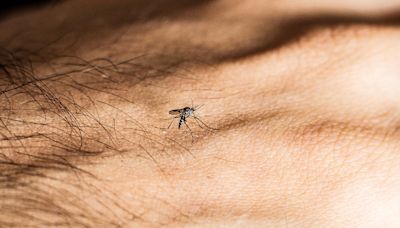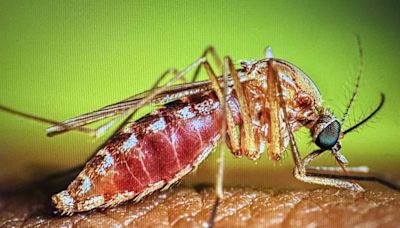Search results
May 14, 2024 · Key points. All four dengue viruses are spread to people primarily through the bite of an infected Aedes species mosquito. A dengue vaccine is recommended for U.S. territories and freely associated states. Protect yourself from dengue by avoiding mosquito bites. Prevent mosquito bites.
- Dengue Vaccine
A dengue vaccine provides your child with safe, effective,...
- About Dengue
Take acetaminophen to control fever and relieve pain. Drink...
- Chikungunya
The most common symptoms of chikungunya are fever and joint...
- Dengue Vaccine
- Key Facts
- Overview
- Symptoms
- Diagnostics and Treatment
- Global Burden
- Transmission
- Risk Factors
- Prevention and Control
- Who Response
Dengue is a viral infection transmitted to humans through the bite of infected mosquitoes.About half of the world's population is now at risk of dengue with an estimated 100–400 million infections occurring each year.Dengue is found in tropical and sub-tropical climates worldwide, mostly in urban and semi-urban areas.While many dengue infections are asymptomatic or produce only mild illness, the virus can occasionally cause more severe cases, and even death.Dengue (break-bone fever) is a viral infection that spreads from mosquitoes to people. It is more common in tropical and subtropical climates. Most people who get dengue will not have symptoms. But for those who do, the most common symptoms are high fever, headache, body aches, nausea, and rash. Most will get better in 1–2 weeks. Some people develo...
Most people with dengue have mild or no symptoms and will get better in 1–2 weeks. Rarely, dengue can be severe and lead to death. If symptoms occur, they usually begin 4–10 days after infection and last for 2–7 days. Symptoms may include: 1. high fever (40°C/104°F) 2. severe headache 3. pain behind the eyes 4. muscle and joint pains 5. nausea 6. v...
There is no specific treatment for dengue. The focus is on treating pain symptoms. Most cases of dengue fever can be treated at home with pain medicine. Acetaminophen (paracetamol) is often used to control pain. Non-steroidal anti-inflammatory drugs like ibuprofen and aspirin are avoided as they can increase the risk of bleeding. For people with se...
The incidence of dengue has grown dramatically around the world in recent decades, with cases reported to WHO increasing from 505 430 cases in 2000 to 5.2 million in 2019. A vast majority of cases are asymptomatic or mild and self-managed, and hence the actual numbers of dengue cases are under-reported. Many cases are also misdiagnosed as other feb...
Transmission through the mosquito bite The dengue virus is transmitted to humans through the bites of infected female mosquitoes, primarily the Aedes aegypti mosquito. Other species within the Aedes genus can also act as vectors, but their contribution is normally secondary to Aedes aegypti. However, in 2023, a surge in local transmission of dengue...
Previous infection with DENV increases the risk of the individual developing severe dengue. Urbanization (especially unplanned), is associated with dengue transmission through multiple social and environmental factors: population density, human mobility, access to reliable water source, water storage practice etc. Community risks to dengue also dep...
The mosquitoes that spread dengue are active during the day. Lower the risk of getting dengue by protecting yourself from mosquito bites by using: 1. clothes that cover as much of your body as possible; 2. mosquito nets if sleeping during the day, ideally nets sprayed with insect repellent; 3. window screens; 4. mosquito repellents (containing DEET...
WHO responds to dengue in the following ways: 1. supports countries in the confirmation of outbreaks through its collaborating network of laboratories; 2. provides technical support and guidance to countries for the effective management of dengue outbreaks; 3. supports countries in improving their reporting systems and capture the true burden of th...
Symptoms. Pictures. Treatment. Causes. Areas of risk. Diagnosis. Prevention. Summary. Dengue fever, or breakbone fever, results from a viral infection carried by Aedes mosquitoes....
Oct 5, 2022 · Additionally, babies of women who get dengue fever during pregnancy have a higher risk of pre-term birth, low birth weight or fetal distress. Prevention Vaccine. In areas of the world where dengue fever is common, one dengue fever vaccine (Dengvaxia) is approved for people ages 9 to 45 who have already had dengue fever at least once.
Jun 16, 2015 · Dengue Fever Prevention. NIAID researchers are actively engaged in the search for an effective vaccine against dengue fever. The vaccine approach that is currently been evaluated at NIAID for efficacy against dengue animal models and human trials is a weakened recombinant version (live-attenuated) of the dengue virus.
May 18, 2022 · Clinical Studies. Help Us Make Better Dengue Vaccines. By taking part in our research study, you can help us make better dengue vaccines that may be used to prevent the virus. To learn about risk factors for dengue fever and current prevention and treatment strategies visit the MedlinePlus dengue site. Content last reviewed on April 30, 2024.


